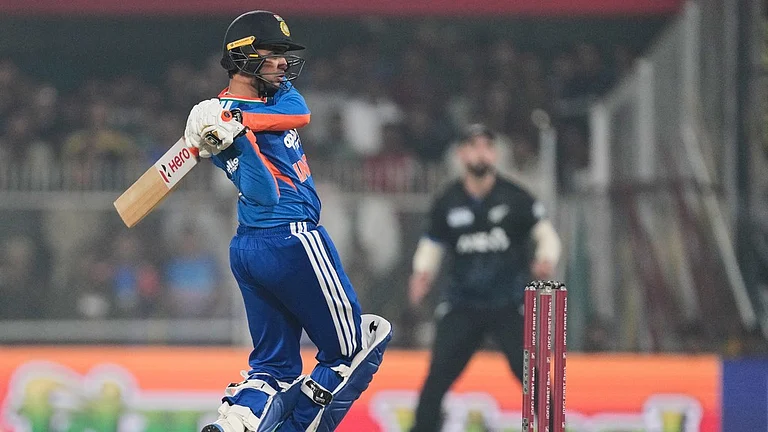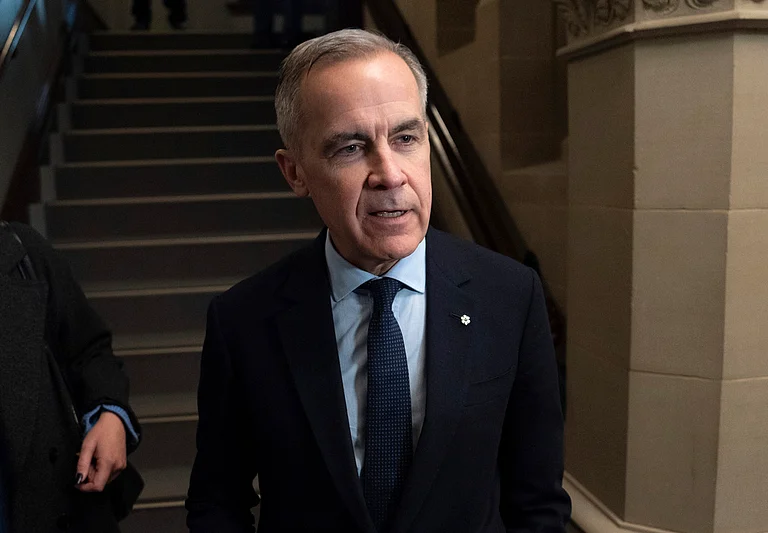Canada is a "rule-of-law country" with a strong and independent justice system and a fundamental commitment to protect its citizens, Prime Minister Justin Trudeau has said, a day after three Indian nationals were charged with the murder of Khalistan separatist Hardeep Singh Nijjar.
Nijjar, a Canadian citizen, was shot dead outside a gurdwara in Surrey, British Columbia, on June 18, 2023.
Karan Brar, 22, Kamalpreet Singh, 22, and Karanpreet Singh, 28, all Indian nationals residing in Edmonton have been charged on Friday with first-degree murder and conspiracy to commit murder.
This is important because Canada is a rule-of-law country with a strong and independent justice system, as well as a fundamental commitment to protecting all its citizens," Trudeau said about the arrests on Saturday at a Toronto gala celebrating Sikh heritage and culture.
"As the RCMP stated, the investigation remains ongoing, as does a separate and distinct investigation not limited to the involvement of the three people arrested yesterday," Canadian Broadcasting Corporation (CBC) quoted Trudeau as saying.
He said that many in Canada's Sikh community are feeling unsafe following Nijjar's killing, adding: "Every Canadian has the fundamental right to live safely and free from discrimination and threats of violence in Canada." The ties between India and Canada came under severe strain following Trudeau's allegations in September last year of the "potential" involvement of Indian agents in the killing of 45-year-old Nijjar, a Khalistan separatist.
India has dismissed Trudeau's charges as "absurd" and "motivated."
The presence of Sikh separatist groups in Canada has long frustrated India, which had designated Nijjar a "terrorist."
After three Indian nationals were arrested in connection with the murder, Police in Canada said they had worked with US law enforcement agencies, without giving additional details.
The police suggested more arrests might be coming. Royal Canadian Mounted Police (RCMP) Assistant Commissioner David Teboul, the force's commander for the Pacific region, said Friday that he wouldn't comment on the alleged links between the three men arrested and Indian officials but noted the force is "investigating connections to the government of India."
Meanwhile, External Affairs Minister S Jaishankar on Saturday said what is happening in poll-bound Canada over the killing of Nijjar is mostly due to their internal politics and has nothing to do with India.
He said a section of pro-Khalistan people are using Canada’s democracy, creating a lobby and have become a vote bank.
The ruling party in Canada has no majority in Parliament and some parties depend on pro-Khalistan leaders, he said.
"We have convinced them several times not to give visa, legitimacy or political space to such people which is causing problems for them (Canada), for us and also for our relationship,” Jaishankar said.
But the Canadian government has not done anything, Jaishankar said, adding that India sought the extradition of 25 people, most of whom are pro-Khalistan, but they did not pay any heed.
“Canada did not give any proof. They do not share any evidence with us in certain cases, police agencies also do not cooperate with us. It is their political compulsion in Canada to blame India. As elections are coming in Canada, they indulge in vote bank politics,” the minister said.




























